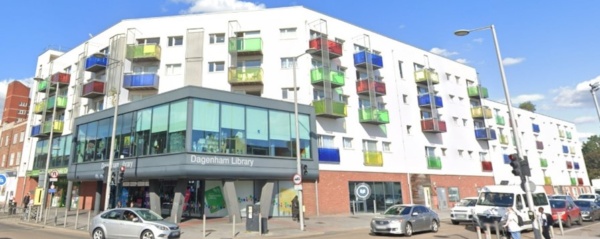During the two years since it launched, the Heat Network Efficiency Scheme (HNES) has already created a strong legacy. Hundreds of heat networks across England and Wales have received support from the scheme, and over 51,000 residents are one step closer to a more reliable, energy efficient heating and hot water system.
HNES has so far announced support for heat networks across seven different funding rounds. 296 heat networks have received a share of over £53 million, reducing carbon emissions by over 200,000 tonnes per year. This is the equivalent of 1,741 one-way flights from London to New York every year.
Earlier in the year, we took the opportunity to reflect on the incredible work that the programme is enabling and revisited a handful of heat networks that are already reaping the benefits of this invaluable support.
How heat networks assist the public sector
HNES is dedicated to making heat networks more efficient, which in turn will reduce energy consumption and lower energy bills for consumers and organisations.
In the public sector, we have supported heat networks serving social housing properties, buildings used as vital healthcare and education facilities, public buildings, and properties used and owned by charities.

At our recent project showcase event, we heard from one of our NHS-owned heat networks serving Hull Royal Infirmary. Hull University Teaching Hospitals NHS Trust covers two main sites, and provides urgent, general, and specialist care to over 1.2 million people.
The Trust houses 1,300 beds. Therefore, reliable, efficient heating provision is critical infrastructure in such a large healthcare hub. Two bids were submitted to help improve the degrading heat networks serving both Hull Royal Infirmary and Castle Hill Hospital. These heat networks were becoming inefficient, with inadequate heat metering, and ageing and failing insulation.
Across both capital grant applications, HNES provided over £250,000 worth of support to Hull University Teaching Hospitals NHS Trust. This went towards the installation of 1,880 meters of pipework insulation and 22 heat meter installations. It is expected that the first years’ worth of energy savings will be calculated
at the end of 2025.
Supporting housing associations with district heating
We were also delighted to hear from Southern Housing at our project showcase event, who told us about efficiency improvements made at their Church Elm Lane heat network, supported by HNES funding.
Located in the London Borough of Barking & Dagenham, the building encompasses 82 homes located on top of Dagenham Library.
The project is a great example of a heat network that returned to HNES to implement the efficiency improvements identified in an optimisation study that was previously funded through the HNES Demonstrator.
Conducted in March 2022, the study found that Church Elm Lane’s heat network was performing at just 23% efficiency: requiring around 765,000kWh of gas to deliver 180,000 kWh of heat each year. These inefficiencies were causing higher heat tariffs for their residents.
Thanks to a successful HNES application, Southern Housing was able to implement a number of efficiency improvements to their heat network. These included new equipment in their plant room, improvements to water quality, re-insulating pipework sections, and replacing individual heat interface units.
As a result, the Church Elm Lane heat network has already seen some significant improvements. Greater efficiency levels have resulted in a 35% reduction in baseline gas usage, saving 90 tonnes of carbon emissions per year. For residents, their annual heating and hot water bill has reduced by around £325 per year, in some instances increasing to savings of up to £490. Overall, there has been a 26% increase in the network’s efficiency level.
Another huge benefit to the HNES supported heat network improvements is the visible boost in the health and wellbeing of Southern Housing residents. Complaints have reduced, and customers are much more satisfied with their heating system.
How can you benefit from HNES funding?
HNES can provide 100% of revenue grant funding for procurement of external third-party support to carry out Optimisation Studies. These studies assess your heat network’s performance and identify causes of any sub-optimal performance. The studies will also recommend costed intervention or improvement measures, which can then potentially be used to inform a capital grant application.
The scheme can also part fund capital works (up to but not including 50% of overall project costs) for the installation of improvement measures, as demonstrated in the two examples given above.
You can apply for HNES if you’re an operator of an existing district or communal heating scheme, and support is available for public, private and third sector organisations. Further information about the Scheme can be found in our Guidance for Applicants document. If you are interested in applying, or have any other general enquiries, email hnes@gemserv.com.
Alternatively, to keep in the loop about future funding rounds and other updates about the scheme, join our mailing list.


